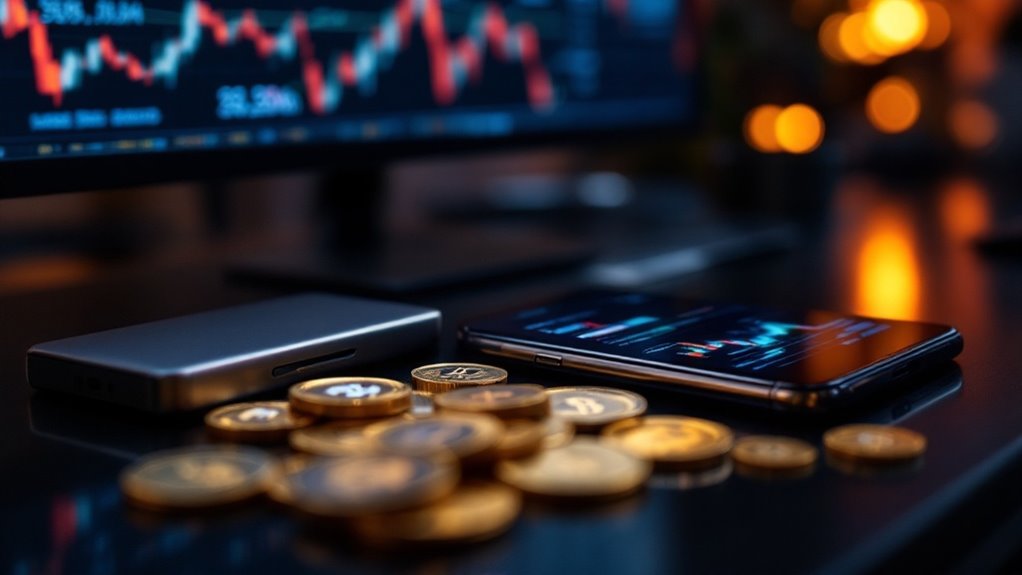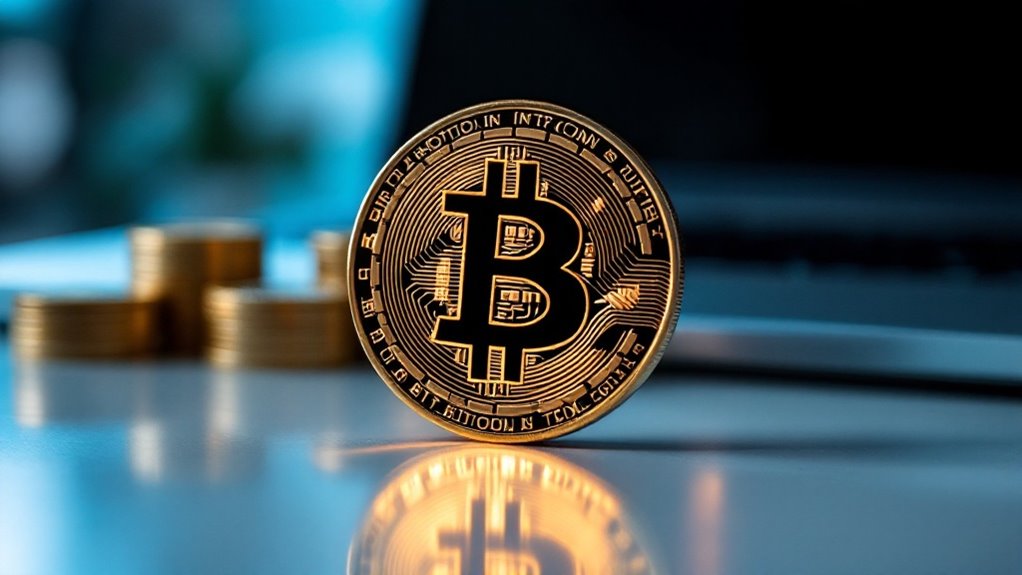Buying cryptocurrency requires several key steps, starting with selecting a reputable exchange like Coinbase or BitMart. After creating and verifying an account, investors can fund it through bank transfers or credit cards—though bank transfers typically offer lower fees. Market orders provide immediate purchases at current prices, while limit orders allow more strategic buying. Security measures, including proper digital wallet storage and regular monitoring, protect investments. The journey from curious newcomer to confident crypto trader unfolds through careful preparation and calculated moves.

Nearly every investor today has heard the buzz around cryptocurrency, yet many remain uncertain about how to begin their digital investment journey. Like stepping into a bustling digital marketplace, the crypto world can feel overwhelming at first glance, with its sea of flashing numbers and unfamiliar terms. The path begins with choosing among thousands of cryptocurrencies, from the stalwart Bitcoin to the smart-contract pioneer Ethereum, or diving into the vast ocean of alternative coins. Stop loss orders can help protect investments from significant market downturns.
Selecting a cryptocurrency exchange feels like choosing a trusted guide through uncharted territory. Understanding blockchain technology is crucial for grasping how these digital assets operate securely. Established platforms like Coinbase offer a welcoming hand to newcomers, while decentralized exchanges beckon to the more adventurous with promises of lower fees and enhanced security. With educational tools like the BitMart Academy, this platform helps investors understand the complexities of crypto trading.
Newcomers find safety in established exchanges, while seasoned traders venture into decentralized platforms seeking greater control and efficiency.
The real work begins with account creation, where investors must navigate through identity verification processes as meticulous as airport security checkpoints. Funding an account opens the door to the actual trading floor. While bank transfers might move at the pace of a careful tortoise, they typically charge lower fees than their swift but costly credit card counterparts.
Smart investors approach this step like careful chess players, considering their moves and timing with precision. The moment of truth arrives when placing that first buy order. Like a seasoned trader on Wall Street, investors can choose between immediate market orders or strategic limit orders, carefully watching their screens for the perfect moment to strike.
Some opt for the steady approach of dollar-cost averaging, treating their investment like a marathon rather than a sprint. Once cryptocurrency is acquired, security becomes paramount. Like precious jewels, digital assets need proper storage, whether in the warm embrace of an online wallet or the fortress-like security of cold storage.
Regular monitoring becomes a daily ritual, as investors track market movements with the attention of weather forecasters studying storm patterns. Success in cryptocurrency investment requires a delicate balance of confidence and caution, technical knowledge and intuition, all while maintaining detailed records that would make any accountant proud.
Frequently Asked Questions
What Happens if I Lose My Cryptocurrency Wallet Password?
If someone loses their cryptocurrency wallet password, they can attempt recovery through specialized services, backup phrases, or recovery tools. Without successful recovery, funds become permanently inaccessible due to blockchain security measures.
How Long Does It Take for Cryptocurrency Transactions to Be Processed?
Cryptocurrency transaction times vary considerably by network. Bitcoin takes 10-60 minutes, Ethereum 30 seconds to 5 minutes, while faster networks like Solana and Ripple complete transactions in under 10 seconds.
Can I Buy Cryptocurrency Using My Credit Card?
Most major cryptocurrency exchanges accept credit card purchases. However, cardholders should expect fees of 3-10%, potential cash advance charges, and possible bank restrictions. Some issuers like Visa and Mastercard generally allow crypto transactions.
Are Cryptocurrency Gains Taxable in My Country?
Most countries tax cryptocurrency gains, treating them as capital gains. The specific tax rates and rules vary by jurisdiction. Consulting a local tax professional is recommended for accurate guidance on crypto taxation requirements.
What Happens to My Cryptocurrency if the Exchange Platform Closes Down?
When an exchange closes, cryptocurrency assets may become frozen or inaccessible. Investors risk potential fund loss but can pursue recovery through bankruptcy claims, legal actions, or withdrawing via API if back-end systems remain operational.









